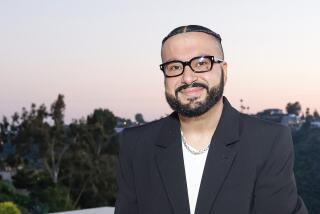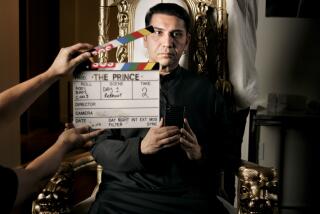Billionaire Club Member Denies Kidnaping Role
- Share via
REDWOOD CITY, Calif. — A former Billionaire Boys Club member, charged with the bungled kidnaping death of his wealthy Iranian father, testified Monday that he had nothing to do with the abduction.
Reza Eslaminia, 26, along with three other BBC members, including alleged mastermind Joe Hunt, are charged with murder, conspiracy and kidnaping in the death of 56-year-old Hedayat Eslaminia, who disappeared from his Northern California condominium in 1984. The elder Eslaminia, a former member of the Iranian Parliament and close associate of the Shah of Iran, fled to America in 1978 following the rise to power of the Ayatollah Khomeini.
Prosecutors say Eslaminia was being taken to a rented Beverly Hills mansion where he would be forced--by torture if necessary--to invest in the foundering BBC. But the younger Eslaminia told a San Mateo County Superior Court jury he believed that BBC leader Joe Hunt was acting as family peacemaker the day his estranged father disappeared.
“I thought if there was anyone who could do it, it was Joe Hunt,” Eslaminia said. “Joe had a way about him. He really made you feel comfortable.”
The soft-spoken defendant, who said he grew up expecting to be the next prime minister of Iran, testified that he went to meet Hunt outside his father’s house, but was told that his father “doesn’t want to see you or even talk to you.”
“I was hoping that Joe wouldn’t think less of me because of the way my father was acting,” Eslaminia said.
After realizing there would be no reconciliation, Eslaminia said he left and drove home. Later that day, prosecutors say, the elder Eslaminia suffocated inside a steamer trunk while being driven to Southern California.
Also charged in the case are Ben Dosti, 26, the son of a Times food writer; James Pittman, 34, the club’s security chief, and Hunt, 27. Hunt is already serving a life sentence for the slaying of a Beverly Hills con man.
Eslaminia testified that he was attracted to Hunt and the BBC because he saw them as the “Kennedys of California.”
“I was hoping somehow, by some miracle, I could get involved with these people,” he said. “They were the kind of kids that my father and mother had preached to me about having friends like that.”
More to Read
Sign up for Essential California
The most important California stories and recommendations in your inbox every morning.
You may occasionally receive promotional content from the Los Angeles Times.











![Vista, California-Apri 2, 2025-Hours after undergoing dental surgery a 9-year-old girl was found unresponsive in her home, officials are investigating what caused her death. On March 18, Silvanna Moreno was placed under anesthesia for a dental surgery at Dreamtime Dentistry, a dental facility that "strive[s] to be the premier office for sedation dentistry in Vitsa, CA. (Google Maps)](https://ca-times.brightspotcdn.com/dims4/default/07a58b2/2147483647/strip/true/crop/2016x1344+29+0/resize/840x560!/quality/75/?url=https%3A%2F%2Fcalifornia-times-brightspot.s3.amazonaws.com%2F78%2Ffd%2F9bbf9b62489fa209f9c67df2e472%2Fla-me-dreamtime-dentist-01.jpg)

